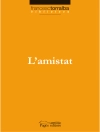This book offers a comprehensive and unitary study of the philosophy of Francis Bacon, with special emphasis on the medical, ethical and political aspects of his thought. It presents an original interpretation focused on the material conditions of nature and human life. In particular, coverage in the book is organized around the unifying theme of Bacon’s notion of appetite, which is considered in its natural, ethical, medical and political meanings. The book redefines the notions of experience and experiment in Bacon’s philosophy of nature, shows the important presence of Stoic themes in his work as well as provides an original discussion of the relationships between natural magic, prudence and political realism in his philosophy. Bringing together scholarly expertise from the history of philosophy, the history of science and the history of literature, this book presents readers with a rich and diverse contextualization of Bacon’s philosophy.
Innehållsförteckning
1 Introduction: Francis Bacon and the Theologico-Political Reconfiguration of Desire in the Early Modern Period.- 2 Appetites, Matter and Metaphors: Aristotle, Physics I, 9 (192a22-23) and Its Renaissance Commentators.- 3 Lists of Motions: Francis Bacon on Material Disquietude.- 4 Bacon’s Apples: A Case Study in Baconian Experimentation.- 5 Prolongatio Vitae and Euthanasia in Francis Bacon.- 6 Francis Bacon’s Flux of the Spirits and Renaissance Paradigms of Hybridity and Adaptation.- 7 Cupido, sive Atomus; Dionysus, sive Cupiditas: Francis Bacon on Desire.- 8 The Ethics of Motion: Self-Preservation, Preservation of the Whole and the ‘Double Nature of the Good’ in Francis Bacon.- 9 Francis Bacon on the Motions of the Mind.- 10 Francis Bacon on the Moral and Political Character of the Universe.- 11 A More Perfect Union: Bacon’s Correspondence of Form and Policy.- 12 Bacon’s Idola in Vernacular Translations: 1600-1900.
Om författaren
Guido Giglioni is the Cassamarca Lecturer in Neo-Latin Cultural and Intellectual History at the Warburg Institute, School of Advanced Study, University of London. He has published on Jan Baptiste van Helmont (Immaginazione e malattia, Milan 2000) and Francis Bacon (Francesco Bacone, Rome 2011), and edited a volume on Francis Glisson’s manuscript papers (Cambridge 1996). He has written a number of articles on Renaissance philosophy and medicine, on such authors as Marsilio Ficino, Girolamo Cardano and Tommaso Campanella. He is currently working on Francis Bacon’s philosophy (ERC Starting Grant ‘Francis Bacon and the Medicine of the Mind’).
James A.T. Lancaster is an intellectual historian, who received his Ph D from the Warburg Institute in London. He is currently a Teaching Fellow in the Department of History at Royal Holloway, where he is in the process of writing a book on the interrelation of religion and the natural world in the thought of Francis Bacon. In addition, as a board member of the Oxford Francis Bacon (OFB), James has been responsible for compiling the most comprehensive bibliography to date of both editions of the works of, and secondary sources on, Francis Bacon. His publications include: ‘The Semantic Structure of Evolutionary Biology as an Argument Against Intelligent Design’ in Zygon: The Journal of Religion and Science; ‘Natural Knowledge as a Propaedeutic to Self-Betterment: Francis Bacon and the Transformation of Natural History’ in Early Science and Medicine; and ‘Natural Histories of Religion: A (Baconian) “Science”?’ in Perspectives on Science.
Sorana Corneanu is Associate Professor of English (English Department) and researcher in early modern studies (Foundations of Modern Thought Research Centre) at the University of Bucharest. She is the book review editor of the Journal of Early Modern Studies (Zeta Books). In addition to articles on early modern philosophy, literature and intellectual history, she is author of Regimens of the Mind: Boyle, Locke, and the Early Modern Cultura Animi Tradition (University of Chicago Press, 2011) and co-editor, with Guido Giglioni and Dana Jalobeanu, of Francis Bacon and the Medicine of the Mind: Late Renaissance Contexts, special issue of Perspectives on Science 20 (MIT Press, 2012), and Francis Bacon and the Reconfiguration of Early Modern Natural History, special issue of Early Science and Medicine 17 (Brill, 2012).
Dana Jalobeanu is lecturer in Philosophy at the Faculty of Philosophy, University of Bucharest, member of the research centre for Logic and Philosophy of Science CELFIS, and of the research centre Foundations of Early Modern Thought (FEM), University of Bucharest. She is co-editor of the Journal of Early Modern Studies and executive editor of Society and Politics. She has published papers on early modern natural history, laws of nature, the emergence of experimental science, experiments, mathematics and natural philosophy in the works of Francis Bacon and Isaac Newton. She has co-edited (with Peter Anstey), Vanishing Matter and the Laws of Nature: Descartes and Beyond, Routledge: London, 2011, and with Guido Giglioni and Sorana Corneanu two special issues of Early Science and Medicine (2012) and Perspectives on Science (2012).












